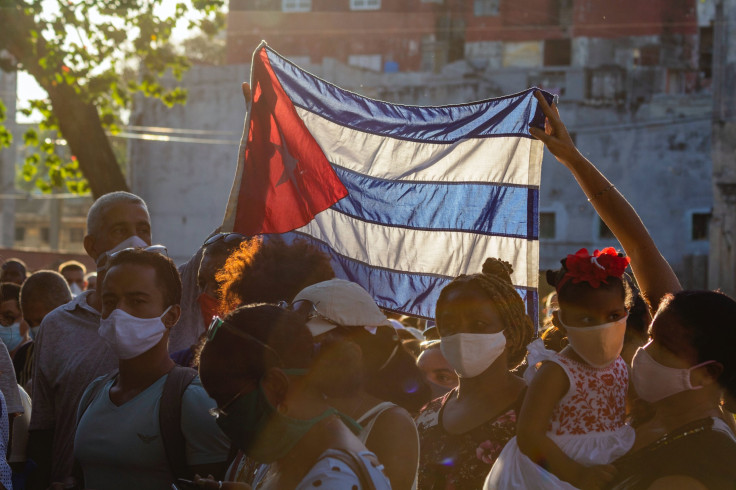
Cuba foiled a plot to sneak arms onto the island from the United States, part of a broader plot to destabilize the Communist government, an official from the Interior Ministry said on Monday.
The government said it first unveiled details of the plot late last year, after a Cuban man living in the U.S. arrived on the island on a jet-ski. He was armed with guns, ammo and military gear and sought to recruit others to his cause.
Authorities gave Reuters a videotaped confession from García, who is now detained in Cuba. Local officials said he also faces human trafficking charges in the U.S.
After months of investigations, the government made over 30 arrests. They include 32 Cuban residents and a U.S.-based group called La Nueva Nación Cubana (the new Cuban nation). The Díaz-Canel administration said the group continues to plot violent attacks on the nation from the U.S.
Havana said it notified the U.S. of the group's existence but that Washington D.C. has not done anything concrete about it. "These individuals continue to act with impunity in North American territory, organizing, financing and supporting activities of a violent nature in order to subvert the internal order of our country," said Víctor Alvarez, an Interior Ministry official.
The U.S. State Department, on its end, told Reuters that it's aware of the allegations but that "U.S. law enforcement prosecutes individuals based on U.S. law and does not take direction from foreign governments."
Cuba has for decades gone after people accused of plotting to take down the government, which has not left power since Fidel Castro took over in the 1960s. The latest wide-ranging local measure was introduced this month through a new bill that could pave the way for the government to strip opposition members from their citizenships if passed, El País reported.
Concretely, the document says that Cuban people "can't be deprived from their citizenship except as a result of legally established causes." They include "enlisting in any kind of armed organization which has the goal of harming the territorial integrity of the state, its citizens and other people living in the country," or "conducting actions that are contrary to the Cuban Republic's political, economic or social interests."
This means that President Miguel Díaz-Canel and the Interior Ministry would be able to deprive people from their citizenship, as the bill deems them "authorities in matters of citizenship and able to solve administrative cases regarding the gaining, loss, deprivation and quitting of Cuban citizenship."
© 2024 Latin Times. All rights reserved. Do not reproduce without permission.







